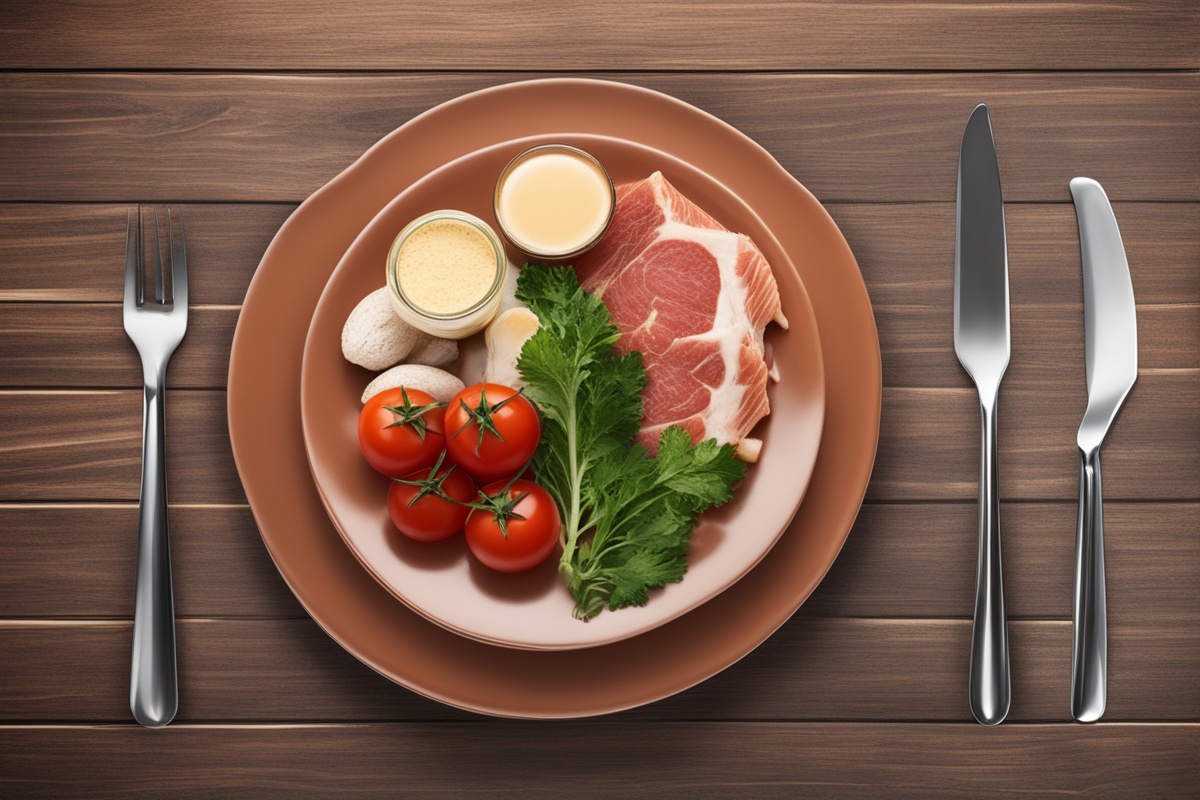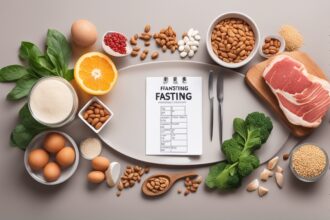Intermittent fasting (IF) has gained immense popularity as a dietary strategy for weight loss, improved metabolic health, and even longevity. However, one question often arises among fitness enthusiasts: can intermittent fasting support muscle gain? This post dives deep into the relationship between intermittent fasting and muscle gain, exploring how this eating pattern can be optimized to build and maintain muscle mass while reaping the benefits of fasting. Whether you’re a bodybuilder, an athlete, or someone looking to improve body composition, understanding how to balance intermittent fasting with muscle-building goals is key.
What Is Intermittent Fasting and How Does It Work?
Intermittent fasting is not a diet but a pattern of eating that cycles between periods of fasting and eating. Popular methods include the 16/8 protocol (fasting for 16 hours and eating during an 8-hour window) and the 5:2 approach (eating normally for five days and restricting calories on two days). During fasting periods, the body shifts from using glucose as its primary energy source to burning stored fat, a process called ketosis. This metabolic switch can influence various physiological processes, including hormone regulation and cellular repair. For those interested in intermittent fasting muscle gain, it’s crucial to understand how fasting impacts muscle protein synthesis and breakdown.
Can Intermittent Fasting Support Muscle Gain?
At first glance, intermittent fasting might seem counterproductive for muscle gain due to restricted eating windows and potential calorie deficits. However, research suggests that intermittent fasting muscle gain is possible with the right approach. Fasting can increase levels of human growth hormone (HGH), which plays a role in muscle growth and repair. Additionally, fasting may enhance insulin sensitivity, allowing for better nutrient uptake by muscles during feeding windows. The key lies in timing your meals and ensuring adequate protein intake to prevent muscle loss. For more on protein timing, check out our post on Protein Timing for Muscle Growth.
Strategies for Combining Intermittent Fasting with Muscle Building
To achieve intermittent fasting muscle gain, strategic planning is essential. First, prioritize protein intake during your eating window to meet your daily needs—aim for 1.6–2.2 grams of protein per kilogram of body weight. Second, time your workouts to align with your feeding window, ideally consuming a protein-rich meal or shake post-exercise to maximize muscle protein synthesis. Third, avoid excessive calorie deficits; while fasting can help with fat loss, insufficient calories can hinder muscle growth. Consider reading our guide on Caloric Needs for Muscle Gain to calculate your requirements. Lastly, stay hydrated and consider supplementing with branched-chain amino acids (BCAAs) if fasting periods are prolonged.
Potential Challenges of Intermittent Fasting for Muscle Gain
While intermittent fasting can be effective, it comes with challenges for muscle-building goals. One major concern is the risk of muscle catabolism (breakdown) during extended fasting periods, especially if protein intake is inadequate. Additionally, fitting enough calories and nutrients into a short eating window can be difficult for those with high energy demands. Fatigue during workouts may also occur if glycogen stores are depleted. To mitigate these issues, experiment with different fasting protocols and monitor your body’s response. For tips on avoiding muscle loss, see our article on Preventing Muscle Loss During Weight Loss.
Myths and Misconceptions About Intermittent Fasting and Muscle
There are several myths surrounding intermittent fasting and muscle gain. One common misconception is that fasting always leads to muscle loss. While prolonged fasting without proper nutrition can cause catabolism, short-term fasting with adequate protein intake does not necessarily result in muscle breakdown. Another myth is that you can’t build muscle while fasting because of limited eating windows. In reality, many individuals successfully pair intermittent fasting with resistance training to achieve muscle hypertrophy. Educating yourself on these myths can help you make informed decisions about your fitness journey.
Who Should Try Intermittent Fasting for Muscle Gain?
Intermittent fasting isn’t for everyone, especially when the goal is muscle gain. It may work well for individuals who thrive on structured eating patterns, have moderate calorie needs, or are looking to lean down while preserving muscle. However, those with high caloric demands (e.g., competitive bodybuilders) or medical conditions like diabetes should consult a healthcare provider before starting. Beginners to fasting should start with shorter fasting windows and gradually adjust. For a broader look at fasting suitability, explore our post on Who Should Try Intermittent Fasting?.
Disclaimer: This content is for informational purposes only and not a substitute for professional medical advice. Always consult with a healthcare professional or dietitian before making significant changes to your diet or exercise routine, especially if you have underlying health conditions.
References
- Trepanowski, J. F., et al. (2017). Effect of Alternate-Day Fasting on Weight Loss, Weight Maintenance, and Cardioprotection. JAMA Internal Medicine.
- Harvard Health Publishing. (2018). Intermittent Fasting: Surprising Update.
- Moro, T., et al. (2020). Time-Restricted Eating Effects on Body Composition and Metabolic Measures in Humans. Journal of Applied Physiology.
- Mayo Clinic. (2021). Intermittent Fasting: Does It Have Health Benefits?
- de Cabo, R., & Mattson, M. P. (2019). Effects of Intermittent Fasting on Health, Aging, and Disease. New England Journal of Medicine.






